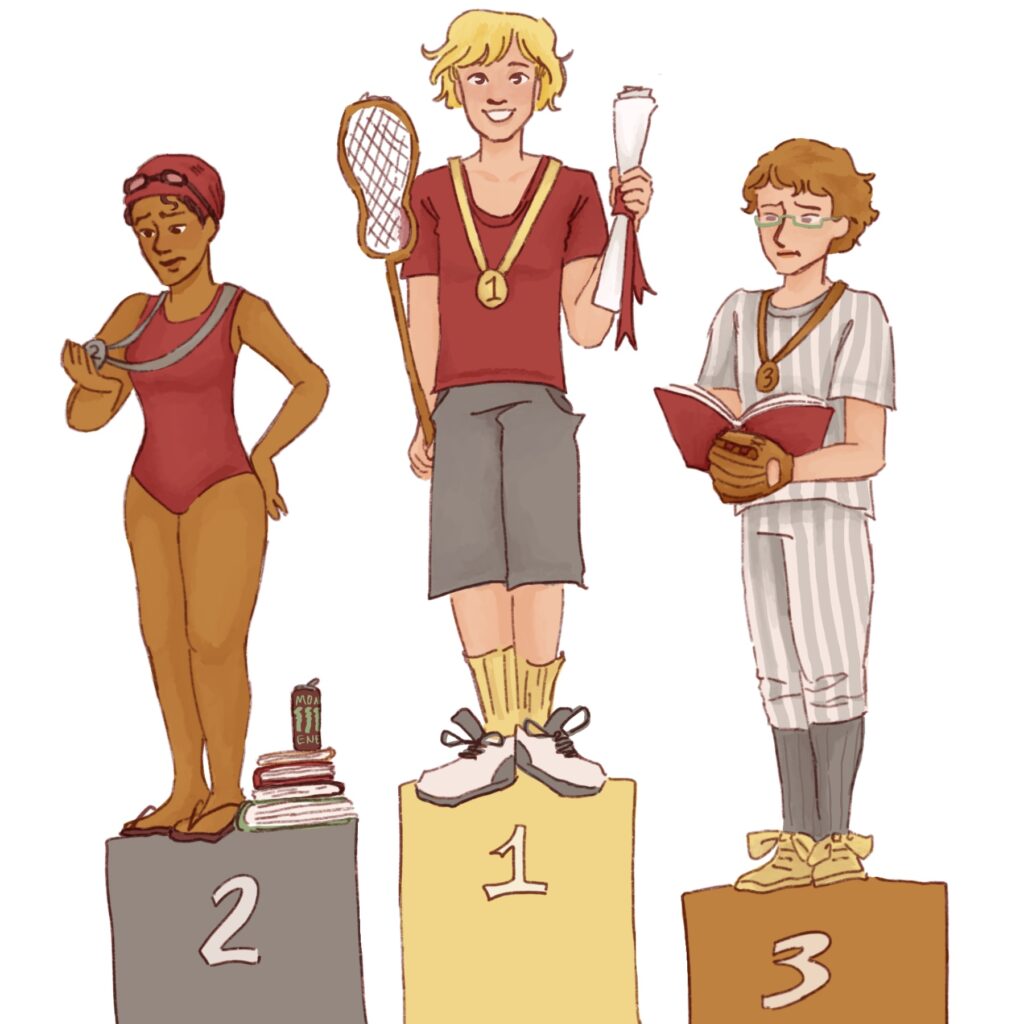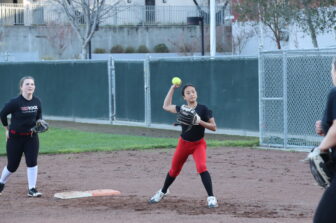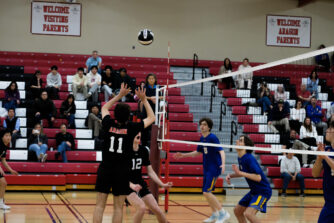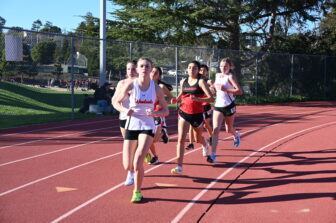
Credit: Alexa Sterry
For most student-athletes at Aragon, the end of high school can mean the end of their competitive athletic career. But for a handful of students, with hopes of competing in college, the work to continue their journey has just begun. June 15 marks the beginning of the college recruiting season for athletes in their junior year of high school.
While many believe that getting recruited is relatively easy for high-level athletes, the recruiting process takes a lot of work to stand out to coaches.
“You have to collect a lot of videos from training, get a lot of emails ready and organize all of your grades and transcripts,” said junior and prospective college gymnast Gianna Thompson.
Staying on top of emailing college coaches is a major part of what athletes are expected to do in order to get, and stay, on coaches’ radars. Once or twice a week, athletes send emails that can include game film, highlights and any other updates that they have to schools they are interested in playing for.
Oftentimes, however, coaches don’t respond to emails that are sent to them, but athletes are expected to continue sending them frequently.
“It’s just a waiting process,” Thompson said. “You have to be really patient and see where the wind takes you.”
Aside from sending emails and game footage, athletes have to maintain their grades in order to stand out. With several great athletes aiming for very limited roster spots, athletes with good GPAs tend to be more appealing to coaches.
“There’s a lot of stress around making sure you are … communicating with coaches and also getting your application done [for] the early decision deadline,” said senior and long jumper Pia Cho.
High levels of stress are not uncommon for athletes who are going through their recruiting process, which can cause their performance to take a hit.
“I was really stressed out,” said senior and University of Illinois women’s gymnastics commit Eden King. “It actually caused me to have a really bad season sophomore year.”
“You have to be really patient and see where the wind takes you.”
Furthermore, athletes feel the need to act in certain ways to impress coaches, often changing their true personalities to better appeal to others. This adds anxiety to an already stressful process, because not only is one’s play being judged, but also their quality of character.
“You kind of have to gauge how [coaches] think of you and what you think about them,” Cho said. “And then there is the pressure of finding a place where you think you will fit in well.”
College coaches often have specific standards for people they are interested in joining their team as they look for those who add to the preexisting team’s community.
“It was really hard for me to determine what type of person each school and coach wanted me to be, and then try and fit into that mold,” said senior and UC Davis girls golf commit Lequan Wang.
At the end of the day, most coaches recognize that the recruiting season takes a toll on young student-athletes. They often look to see if and how these athletes will overcome these tough times, as it can tell a coach a lot about that athlete’s resilience. Pushing through despite adversity and always continuing to be a good teammate, even in the face of personal struggles, can set apart good athletes from great ones.
The reward is when the time finally comes that a coach emails back or gives that athlete a call.
“It feels like all of the hard work you’ve put in has finally paid off,” Wang said.



